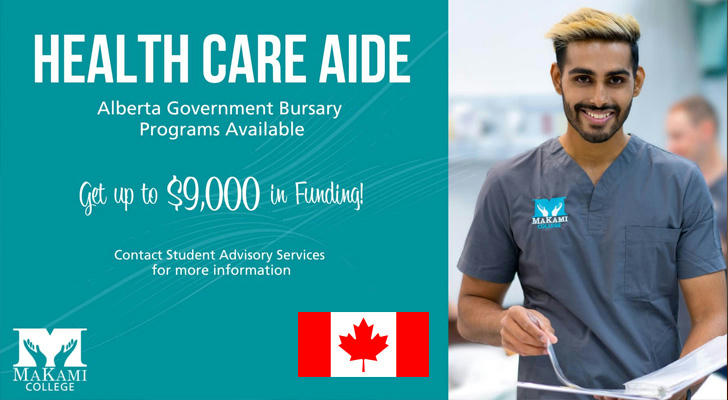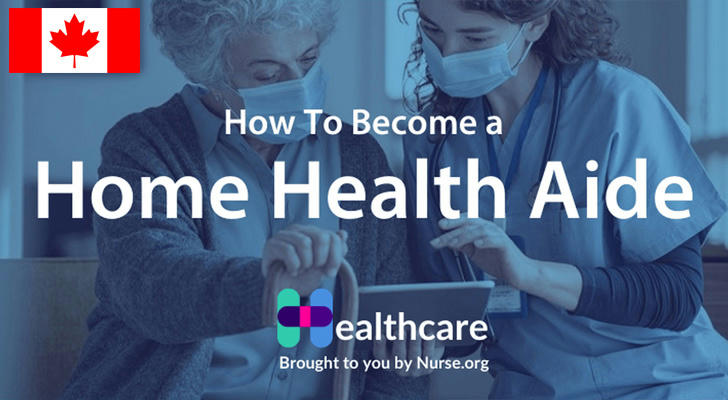👩 Canada's Guide to Government-Supported HCA Paid Training: Learn While You Earn + No Tuition Worries
📢 Learn and earn | government funding | professional certification | career development support

The Canadian government has launched a funding program to help students "learn while they earn" to become healthcare assistants, without worrying about the cost, and to alleviate the industry's labor shortage.
💡 What Are HCA Paid Training Programs?
These programs (exemplified by British Columbia's Health Career Access Program, HCAP) are built on a core philosophy: hire first, train second.
This means you no longer need to pay for your education upfront to find a job. Instead, you'll first be hired as a "Health Care Support Worker," earning a stable income while your employer and the government jointly fund your professional HCA training. It’s a revolutionary model that perfectly combines learning, working, and earning.
✅ Three Core Advantages
Advantage 1: Learn While You Earn, No need to worry about costs
This is the biggest draw of these programs. As an employed trainee, you'll earn a salary throughout your studies. On top of that, your tuition, textbooks, and even some training-related fees will be covered by the government or your employer. This allows you to maintain a steady income while acquiring professional skills, completely eliminating the financial struggles of traditional academic paths.
Advantage 2: Job Security After Training
These programs are designed specifically to fill a healthcare staffing shortage. As a result, once you complete your training and become a certified HCA, a secure job will typically be waiting for you. You will most likely be formally employed by the same organization that sponsored your training, providing peace of mind and significantly reducing job-hunting uncertainty.
Advantage 3: Generous Bursaries to Ease Financial Strain
Even if your province doesn't offer a full paid training program, many local governments provide generous HCA tuition bursaries. For example, Alberta offers students thousands of dollars in bursaries to help cover tuition. These grants don't need to be repaid and represent the government's investment in your career, further easing your financial burden.
🚩 Canadian HCA Government Funding Programs
| Province | Program Name | Program Features | Funding Details |
|---|---|---|---|
| British Columbia (BC) | Health Career Access Program (HCAP) | Paid Training Model: You're hired as a Health Care Support Worker, then trained with joint funding from your employer and the government. | - You get paid during training |
| Alberta | Alberta Health Care Aide Bursaries | Tuition Bursary Model: Provides financial assistance to students enrolled in HCA courses at approved institutions. | - Up to $9,000 CAD in non-repayable bursaries to cover tuition |
| Other Provinces | Provincial Healthcare Recruitment & Training Initiatives | Diverse Funding Models: Programs vary by provincial healthcare needs and may include paid training, tuition waivers, or bursaries. | - Funding types and amounts vary by program |
🏥 Health Care Assistant (HCA) Career Profile Summary Table
| Aspect | Details |
|---|---|
| Typical Age Range | Wide range, from 20 to 60+ years old. Very common as a second career or for those seeking stability, making career changers aged 30-50 highly prevalent. |
| Entry-Level Wage | $25 - $28/hour (BC Public Sector 2024 benchmark wage) |
| Experienced Wage | $28 - $32+/hour (Increases with seniority and experience, plus premiums for evenings, nights, and weekends.) |
| Key Responsibilities | Activities of Daily Living (ADLs): Assist with bathing, dressing, eating, toileting, mobilizing. Basic Clinical Care: Measure vital signs (blood pressure, temperature), apply simple dressings, assist with medication reminders. Emotional & Social Support: Provide companionship, communicate, facilitate social activities. Routine Tasks: Make beds, maintain a clean environment, document care, report changes in clients. |
🔍 How to Apply?
Since these programs are usually led by provincial health or education authorities, the application process can vary. However, the general steps typically include:
- Find program information: Check your provincial government's official healthcare recruitment websites, such as the BC HCA program site.
- Submit your application: Apply online with your resume and application form as required.
- Pass the interview: You'll need to pass an interview and a background check with the employer to prove your potential as a qualified healthcare worker.
In short, the Canadian government has paved a solid path for those who aspire to a career in healthcare. If you're passionate about the industry, now is the perfect time to get started.

